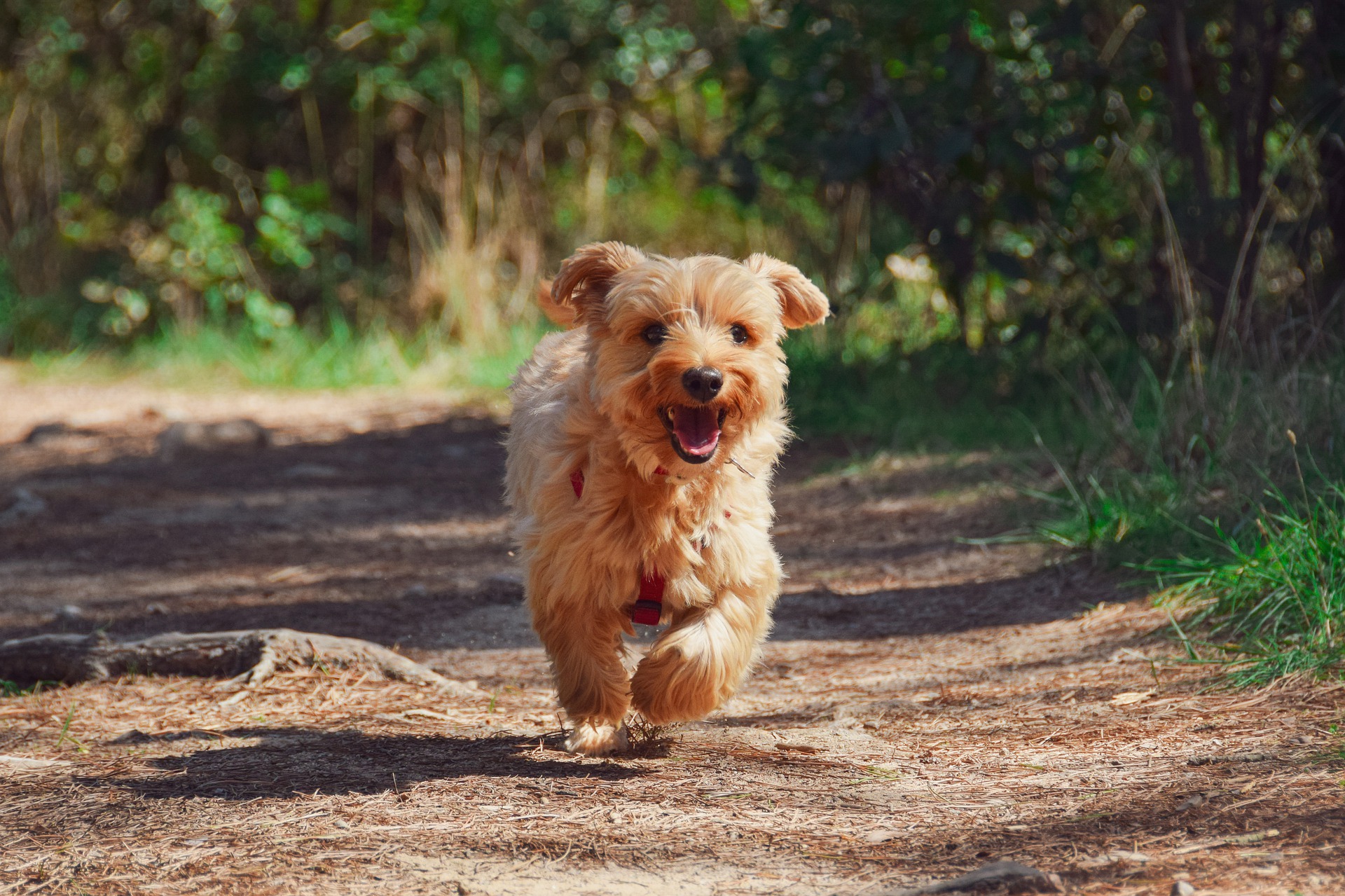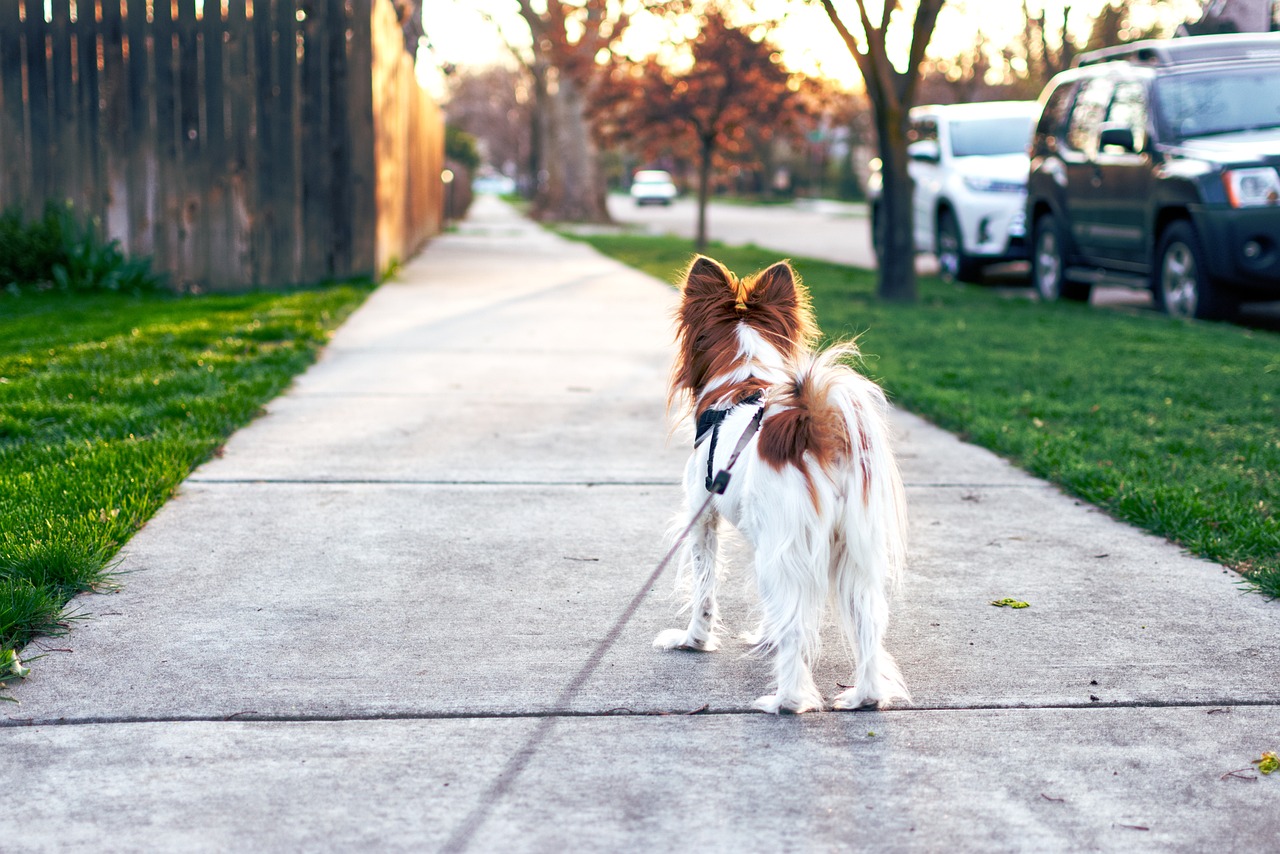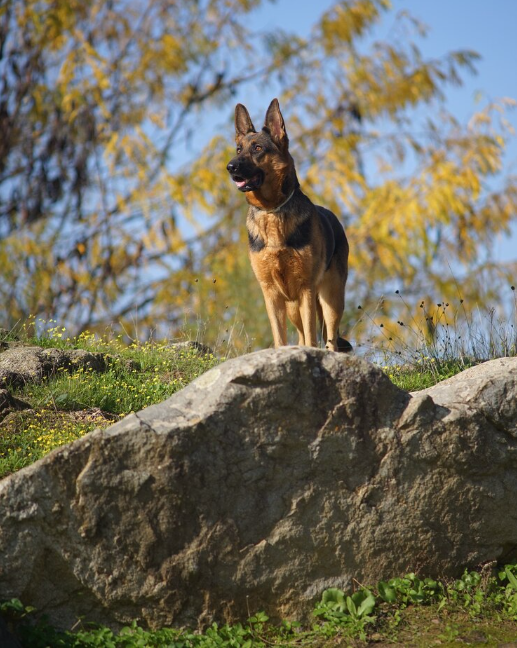
Dogs truly are man’s best friend and this is evident from many stories like the one of the German Shepherd Sadie who saved her owner Brian by dragging him to a phone so he could call for help. In another home, the Pitbull named Sasha saved a baby from a house on fire back in 2020.
Brave canines like Sasha and Sadie inspire many to adopt a dog and share their home with a lovely furry pet. However, there are those of us who struggle with allergies and may be looking for a sweet dog to join our family and life. Living with an allergy can be difficult depending on what your body is sensitive to and your diet. Are there hypoallergenic dogs? What dogs are hypoallergenic? We will try to answer these questions below, please keep reading.
Are There Hypoallergenic Dogs?
A study published online on July 1st, 2011 was done on the allergen levels in babies in the homes of 190 dog owners which covered 60 dog breeds. The study suggests there are no truly hypoallergenic dogs. However, the study has a few important limitations to consider. The time a dog spent in the same room as the baby was not recorded which can skew the results. Also, the samples of allergens were collected straight from the bodies of the dogs and not from the surfaces touched by the babies. The authors of the study state:
“Hypoallergenic classification schemes yielded no statistically significant differences between reportedly hypoallergenic and non-hypoallergenic dogs when considered as either the percentage of homes with detectable dog allergen levels or as the level of dog allergen in homes where it was measurable.”
There is no such thing as a completely hypoallergenic dog breed, as all dogs produce allergens to some extent. Allergens are proteins found in a dog's skin cells (dander), urine, and saliva, and it's these allergens that can trigger allergies in humans. However, some dog breeds are known to produce fewer allergens than others and may be better for people with allergies and asthma. This type of dog is what we commonly call a “hypoallergenic dog”. Considering the research mentioned above, please note that not everyone who deals with asthma and allergies can tolerate what is colloquially considered a “hypoallergenic dog”.
What Allergy Symptoms Can Dogs Trigger?
As mentioned above, things like a dog’s saliva, dead skin cells, and urine can trigger an allergic response by your body. Allergic reactions vary between persons and this can include hay fever, difficulty breathing, hives, rashes, itching, increased heartbeat, and sneezing. In rare cases, an allergic person can even go into shock due to their immune system flooding with chemicals that aim to combat the substance that the body considers harmful (even if it is harmless).
Activities like petting dogs, grooming them, and playing with them are known to have a soothing effect as well as contribute to better physical health. Some people with autism, anxiety, or other conditions may benefit from having a hypoallergenic dog as a pet. Dogs can provide comfort, companionship, and emotional support to their owners, and having a dog that doesn't trigger allergic reactions can make it easier for people with sensitivities to enjoy these benefits.
What Breeds of Dogs Are Considered Hypoallergenic?
While no dog is completely hypoallergenic, some breeds are better suited for people with allergies because they produce fewer allergens. This can be due to several factors, including:
Coat type
Dogs with hair instead of fur tend to produce fewer allergens, as their hair grows continuously and does not shed as much as fur. Some breeds, such as poodles, have hair that grows in tight curls, which can trap dander and prevent it from spreading.
Shedding
Dogs that shed less often produce fewer allergens, as shedding spreads dander and other allergens around the home. Breeds that don't shed or shed very little, such as the Basenji or the Chinese Crested, can be good options for people with allergies.
Saliva and Urine
Dogs that produce less saliva and urine also tend to produce fewer allergens. Breeds such as the Bichon Frise and the Portuguese Water Dog are known to produce less saliva than other breeds.
If you have allergies but you still want to have a furry companion at home, we recommend the breeds listed below. It's important to note that individual dogs within a breed can still vary in their allergen levels and that allergic reactions are not just caused by allergens alone. Other factors such as the dog's grooming habits, living conditions, and the person's own sensitivities can all play a role in whether a person will have an allergic reaction to a dog.
Anyone considering getting a dog for allergy reasons should spend time with the breed and individual dog to see how they react before making a commitment to pet ownership whenever that is possible.
Recommended Breeds
Poodle
Poodles are often considered the most hypoallergenic breed of dog due to their curly, non-shedding coat which requires regular grooming. Fortunately, you have two size options to consider: miniature (toy) and standard. Both types are famous for their intelligence and willingness to please.
Portuguese Water Dog
This breed has a thick, curly coat that sheds minimally and produces less dander. These dogs have strong spirits, they are motivated to please and are very athletic. These traits can be considered an advantage by any active owner.
Bichon Frise
These small dogs have a curly, non-shedding coat that produces less dander, making them a good choice for people with allergies. These dogs are very cheerful and full of energy. They are great companions for young children.
Kerry Blue Terrier
Kerry Blue Terriers have a soft, wavy coat that doesn't shed much and produces fewer allergens. These dogs are famous for their beard and they need professional grooming. If you are looking for a playful, adaptable, and vigilant companion dog this breed may be perfect for you.
Basenji
Basenjis have short, fine coat that doesn't shed much and produces less dander than other breeds. Their coat can benefit from the occasional brushing with a bristle brush. These dogs are affectionate, and social and need a lof mental stimulation. If you love to play games with a dog, this breed may be perfect for you.
Yorkshire Terrier
These small dogs have a fine, silky coat that sheds minimally and produces less dander. These dogs can be best described as lovey-dovey, amazing with children, and rather playful. However, their coats require regular grooming and very good care to remain pristine.
Maltese
Maltese dogs have long, silky coat that doesn't shed much, making them a good choice for people with allergies. The breed is famous for being gentle and charming. They are good with children and relatively easy to train. Keep in mind their coat needs a lot of care to be silky and clean.
Shih Tzu
These small dogs have long, silky coat that doesn't shed much and produces less dander. The dogs of this breed are outgoing and affectionate. They have a lot of confidence despite their toy size. They need grooming at least two times per week and they are very eager to please.
Chinese Crested
This breed has a mostly hairless body, which means they produce fewer allergens than other breeds. This breed looks very different from those mentioned so far but you can trust these canines to be vigilant and full of energy. Dog trainers consider the breed easy to handle and good with young children.
Bolognese
These dogs are low-shedding and their coat requires little effort in grooming but you have to make sure the coat is not matted. The Bolognese dogs are known for their calm temperament, devotion to their family, and for being playful with young children. Dog trainers find them very easy to train although lacking in energy compared to other dogs.
F.A.Qs
Can you be allergic to certain dogs?
No, you can not be allergic to a specific dog. As mentioned above, your allergy response depends on a lot of factors. You might have an allergic response to a dog that is not properly groomed and dirty but you may not have the same reaction to a dog of the same breed that is well-groomed.
How can I raise a dog in my house if my family is allergic?
Please, talk to your family after reading this article. You could consider fostering hypoallergenic dogs from a local shelter and see how that will affect the health of your family members. If there are no problems you could adopt a dog that falls in the “Hypoallergenic Dogs” category.
What is the friendliest hypoallergenic dog?
Probably the Bichon Frise due to their playfulness, natural curiosity, and confidence. These dogs are very affectionate and amazing with children, pets, and other dogs.
Why are almost all Terriers hypoallergenic?
These dogs have short coats that are easy to groom and they are famous for their general good health.
Can a dog be allergic to their own dander?
This is very unlikely. It is more likely that there is something in the coat of your dog that could trigger an allergic reaction. When a dog is exposed to an allergen, such as pollen, mold, dust, certain foods, or fleas, their immune system produces an overabundance of antibodies and histamine. Symptoms of an allergic response in dogs can vary depending on the type and severity of the allergy but may include:
Itching and scratching
Redness, swelling, or rashes on the skin
Hair loss or thinning coat
Ear infections or ear inflammation
Sneezing, coughing, or wheezing
Runny nose or eyes
Vomiting or diarrhea
If you have more dog questions, we have dog answers in our blog.












